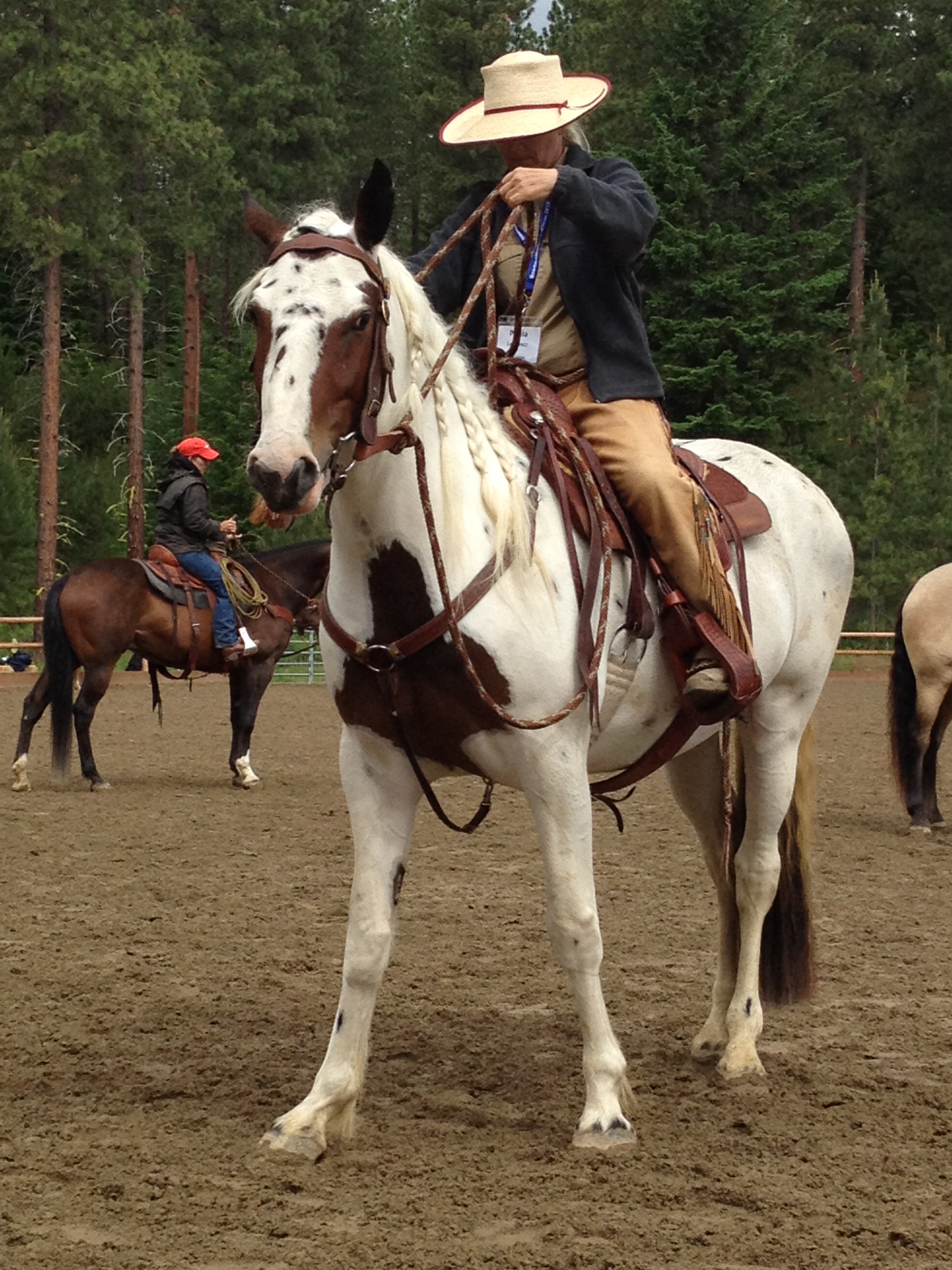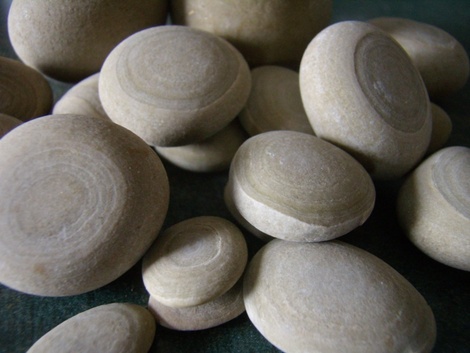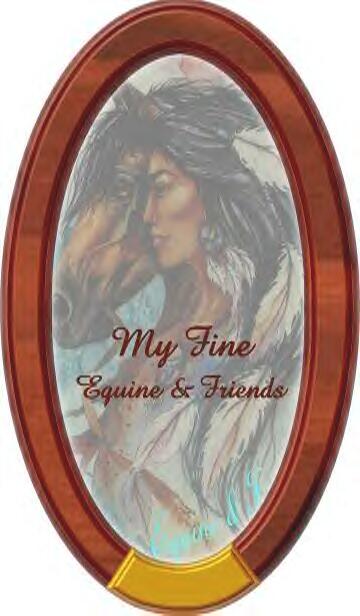
Equine Solutions Catalog Page 14

ABC's PRO BI Liquid Probiotic
for Horses,
PrePro - Equine Health Supplement
PRO BI is a biological feed additive designed to maximize digestive efficiency.
Why is Pro Bi different? How does it work?
Pro Bi is a prebiotic, not a probiotic. Pro BI is food for microflora and substrate that creates a supreme environment
for microflora to colonize and multiply at an accelerated rate.
This is why Pro Bi is so effectice. Benefits are realized rapidly and consistently. Pro Bi consists of 90% Prebiotics
(food for digestive microflora) , 5% Probiotics (digests microflora), 5% Enzymes.
Pro Bi doesn't have to be refigerated. Shelf Life is forever.
A horse's beneficial intestinal bacteria can be destroyed or depleted and the pH of their environment can be altered during times of stress. Competion, travel and breeding or treatment with antibiotics, dewormers and other medications can cause this stress. Stress can also be created by alterations of weather, environment, feeds and water.
Without the beneficial intestinal bacteria, food ferments instead of being digested. Undigested foods may then lead to situations of colic, bloat, founder and increase the possibility of developing allergic conditions. PRO BI contains a natural fermented extract plus a number of herbs, such as Ginger, Peppermint, Dandelion and Violet Leaves which nourish the natural bacteria and encourages them to reproduce and multiply at a rapid rate. Most bacteria reproduce every 15 minutes, so it is possible to speed recovery of a colic case or even treat some simple colics entirely with PRO BI.
PRO BI is the benefit of microbials; no waiting, It Just Works! Best of all no worry
about shelf life.
Ingredients: Lactobacillus Acidophilus Fermentation Product, Alo Vera, Chlorophyll Liquid, Peppermint, Ginger,
Dandelion and Violet Leaves in a proprietary blend.
THE DIGESTIVE TRACT FIRST AID KIT -- NEVER BE WITHOUT IT!
WHEN & HOW TO USE:
Also good for dogs and cats. Dogs: 20 drops initially orally or with feed, and 10 drops thereafter.
Cats: 10 drops initially orally or with feed, and 5 drops thereafter.
Feel safe, you can't overdo, just make sure they can swallow it without choaking because you put too much in their
mouth.
Before and during travel, throughout competitions, with de-wormers, antibiotic therapy, and alterations of feed, water and/or environment:
5cc (ml) twice daily, orally or with feed.
At any sign of or suspicion of digestive disorders (including diarrhea):
10cc (ml) orally, immediately. Thereafter, 5cc (ml) twice daily until signs of the disorder subside.
Colic: Administer orally, 1 oz. (3Occ), immediately, and then contact
your local veterinarian.
FOALS: Administer 5cc (ml) shortly after birth.
SKU: 8152OZBTL Equine PRO BI™ - 2 OZ Bottle Advanced Biological Concepts®
PRO BI™ is a biological feed additive designed to mazimize digestive ifficiency. A horse's beneficial intestinal
bacteria can be destroyed or depleted and the pH of their environment can be altered during times of stress. Competition,
travel, breeding, treatment with antibiotics, de-wormers and other medications can cause this stress. Stress can
also be created by alterations of weather, environment, feed and water.
Item No.81516OZBTL Size: 16 ounces
Item No. 8151GALBTL Size: 1 Gallon
Current Pricing is listed in the Shopping Cart.
See Catagories on the Left Side in alphabetical order, as they are links to sizes and prices and
the BUY NOW button. Click on the little blue grocery bag.
Quick! Take Me To The Shopping Cart to order & Check Out!... 

Here is a photo last month at the Buck Brannaman Foundation Clinic.
My 3 year old Perch/Paint Kingsley has been battling major diarrhea since before I bought him at 1 1/2 yrs old.
I had a hair analysis taken then put him on a personalized supplement, did several fecal tests he did have small
strongyles but got that all taken care of. Changed hay which I found Orchard Grass and Teff Hay especially did
not agree with him!
Still major diarrhea for months and months I had used ABC products before but had stopped for some reason before
I purchased Kingsley.
I got a hold of Vickie and told her the problem she patiently worked with me and answered all my many questions.
Finally, no more diarrhea and no more gross tail!
I fed 1 scoop MOP in his feed twice a day for 30 days, 2 scoops ABC PLUS twice a day ( double suggested dose),
and 5 ml of Probi twice a day with one cup alfalfa pellets.
And FREE CHOICE Rush Creek Mineral.
I know longer force feed the MOP but do keep the MOP and Rush Creek Mineral as free choice at all times.
Now I just feed the 1 scoop alf pellets, 2 scps ABC PLUS twice a day, and the 5 ml Probi twice a day.
Plus pasture while we have it and or grass hay.
Thank you Vickie!
Paula Lawrence
Port Orchard, WA

NOTE on more PRO BI uses:
1) For sores (ulcer type) that won't heal, you can apply PRO BI, it will often induce healing.
2) It has shown some success on healing stubborn scratches.
3) For fungus or eye infections; dilute four parts distilled water to one part PRO BI and use as eye drops.
4) Has been used for persistent fungus of the sheath.
I personally keep Probi on hand and use it for colic episodes, after antiobiotics
for a few days to a week to
put back the friendly flora killed off by antiobiotics (if you use chemical wormers still you should use it
after that and vaccinations), I use it on my cats and dogs to settle their tummies
and after antiobiotics, clear up vomiting or diarreah. It's like GOLD to me.
“Our dog had been bitten or stunk by something - we tried everything!
I called Jim for advice – He recommended putting Pro Bi on it – I started right away – the first day I took a towel
and padded the Pro Bi on the sores three or four times. Within 24 hours, it started looking better! We were shocked!
I purchased a small spray bottle and continued 2 or 3 times a day just spraying the Pro Bi on the wound – It was
amazing how well it worked!”

If you are looking for an everyday solution for digestive problems, ulcers, lack of absorption of
nutrients etc... use the ABC Plus or the Equine-Zyme. Both are excellant Digestive Aids for daily top dressing. Vickie Stevens
Repeated bouts of colic can also be signs of enterolith stones. If your horse suffers from
repeated colic ask your vet if stomach ulcers or enterolith stones may be a culprit.
Stomach Ulcers in Horses - http://voices.yahoo.com/stomach-ulcers-horses-494737.html?cat=70

enterolith stones
http://www.learningabouthorses.com/savvy/bezoar_arsenic.html
Enteroliths or bezoars are stones that form in the intestinal tract of horses. They are made of minerals - primarily
magnesium, ammonium and phosphate.
The stones start to form when a foreign object such as a small piece of wood, twine, wire, sand or even a piece
of hair becomes wrapped in concentric rings of minerals.
When a horse has an enterolith he has a condition called enterolithiasis. (Say that fast three times!)
The cause of the stone formation is under constant research. At this time it is believed that enterolithiasis is
caused by several factors: genetic, environment and diet.
Researchers at UC - Davis have identified three genes that may be associated with enterolithiasis. Records have
also shown that Arabians and Arabian crosses are more prone to develop enteroliths, making up 40 percent of the
reported California cases. Warmbloods seem to be less prone to stones.
Stall confinement and lack of access to pasture decreases the risk of enterolith development. It is thought exercise
improves the mobility of the intestinal tract and grass dilutes the mineral concentration.
Research has also shown enterolithiasis is more prevalent in California and the southeastern part of the United
States. Reasons are unclear, although a common factor is the feeding of alfalfa.
Alfalfa hay has always been an element associated with the formation of enteroliths. Alfalfa is high in calcium,
magnesium and protein, which can create higher levels of mineral concentration in the large intestine.
Research has also shown a high pH (alkaline) level within the cecum (part of the large intestine) is associated
with enterolithiasis. Creating a more acidic environment may be helpful in reducing the formation of enteroliths.
Adding a half cup of apple vinegar to the diet twice a day may help lower the pH level in the cecum (1,000 pound
horse).
Dietary recommendations for horses with a history of enterolithiasis or that fit the profile include offering no
alfalfa, not feeding wheat bran (high in phosphorus), adding apple vinegar to the diet and pasture. Insuring horses
have access to fresh clean water at all times also lessens the chances of an enterolith developing.
Colic is the first indicator that your horse might have an enterolith. The symptoms may worsen as the large intestine
becomes loaded with gas. Colic symptoms are:
• Refusal to eat grain or hay
• Change in attitude
• Restlessness
• Pulse, respiration rate, or temperature may be slightly elevated
• Glancing back at the sides of the barrel
• Kicking at the stomach
• Pawing or foot stomping
• Yawning
• Standing in a stretched position
• Tail switching
• Stumbling
• Groaning or sighing
• Repeated laying down
• Stretching of the legs while laying
• Attempting to roll
Horses with enterolithiasis may also be sluggish, unwilling to work or exercise, be thin and unthrifty and have
occasional loose bowel movements.
Diagnosing enterolithiasis is difficult. The stones are usually discovered when the horse is operated on for colic. 
COLIC and Stomach Ulcers and Enterolith/Bezoar Stone Info
![]()
Proflora #306-1D Price : Human grade of the Pro Bi. NO LONGER AVAILABLE
1 fl.oz.
21.63 Plus Actual Freight
Proflora provides synergistic nutritional and botanial support to optimize the growth of beneficial flora, inhibit
pathogenic or abnormal flora, and soothe irritated intestinal mucosa.* Proflora is recommended during and after
the use of anti-pathogenic supplements or antibiotics. It is a mild tasting liquid perfect for the whole family,
and unlike many probiotic combinations, does not require refrigeration.
Equilite's PrePro - Equine
Health Supplement 
PreProbiotics A blend of direct fed microbials
important to support healthy digestive processes.
Crucial to an animal’s gut are the “friendly bacteria” for mircorbial balance.
Prebiotics (Fructooligosaccharides FOS) are added to help increase the nutrients needed for specific bacteria to
survive.
Digestive enzymes are used to help break down food for proper digestion and absorption.
Wonderful to use before and after worming or antibiotic protocols. An average size horse uses 10 grams per day.
Size
Item 1 lb. (PrePro - Equine Health Supplement)
Item 4 lb. (PrePro - Equine Health Supplement)
Current Pricing is listed in the Shopping Cart.
See Catagories on the Left Side in alphabetical order, as they are links to sizes and prices and
the BUY NOW button. Click on the little blue grocery bag.
Quick! Take Me To The Shopping Cart to order & Check Out!...

"I would have no qualms giving Pre Probiotics to my own horses if I had a Cushing's horse. I also have SEVERAL
clients with Cushing's horses giving Pre Probiotics with the animal only improving. FOS's actually support gut
health which supports upper GI and pancreatic health. Human diabetic patients have no problems taking FOSs (eg
no change in insulin needs when taking it). It is a complex fiber that does not cause blood sugar spikes."
Kim Henneman, DVM, CVA, CVC
"I gave one of my clients the Pre Probiotics. She has an old mare, 24 years old, that has numerous melanomas.
She has been having digestive problems, especially diarrhea. The vet recommended that she be put on probiotics,
so we started using your Pre Probiotics with her. There has been a definite improvement. She is not nearly as 'runny'.
My client is very impressed."
Kristy Limon, Eventer, Magnolia TX
See More about ProBiotic Microbial Benefits- Go here...![]()
Use the Navigation Bars for quick and easy access.

You can contact us by Snail Mail at: